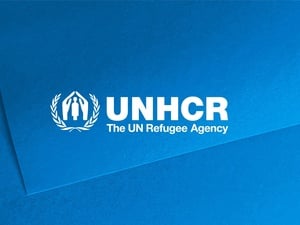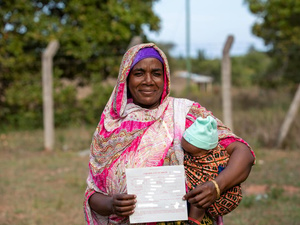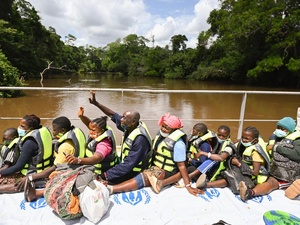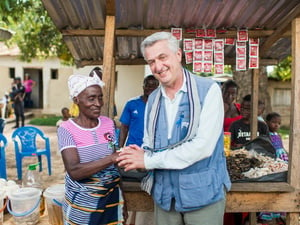Liberia: serious concerns for displaced, refugees, nurses
Liberia: serious concerns for displaced, refugees, nurses
UNHCR remains very concerned about the fate of five NGO nurses taken by LURD rebels in an attack on Sinje refugee camp in north-west Liberia on June 20. We are also increasingly concerned about thousands of Sierra Leonean refugees and local Liberians who fled the camp in the wake of the attack. Sinje had housed some 24,000 people before the attack. The current heavy rains in the region mean that the condition of those remaining in the bush is almost certainly deteriorating. Some refugees who had been housed in Sinje have managed to reach Sierra Leone as well as other refugee camps around Monrovia. They are famished, sick and exhausted from walking long distances (Sinje is some 80 km from Monrovia). They said some were too weak or wounded to manage the trek. Some have paid exorbitant prices to hire vehicles to bring them to the camps, but many cannot afford transport. Some 3,800 refugees from Sinje have been registered in the camps around Monrovia since the June 20 attack.
Heavy rains are also wreaking havoc on already poor roads leading to the Monrovia camps, making access increasingly difficult. UNHCR will have to use these roads to transport Sierra Leonean refugees to the harbour for possible repatriation by sea. About 4,000 Sierra Leonean refugees have so far registered to repatriate, and more sign up every day.
Meanwhile, the flow of Liberian refugees and Sierra Leonean returnees from Liberia to Sierra Leone via the main Gendema crossing point has slowed in recent days, to 100-150 per day. This is down from an average of 400 a day last week, and from as many as 1,700 per day two weeks ago. In all, over 8,800 Liberian refugees and 2,300 Sierra Leonean returnees have crossed at the Gendema crossing point from June 20 to July 10. Hundreds more have crossed at the three other official crossing points as well as via various unofficial routes along the border. We continue to shuttle Liberian refugees and Sierra Leonean returnees from entry points in Gendema, Gbaa, Dar-es-Salaam and Gissiwulo, to the Zimmi way station, where they spend one or two nights in transit before being relocated to the UNHCR camps. At the way station, arrivals receive food and undergo medical and security screening. About 1,440 people are currently at the way station. Since the beginning of the year, more than 17,000 Liberian refugees have been relocated from Zimmi to refugee camps. In all, the camps currently house some 28,000 refugees.
The number of Liberian refugees in Sierra Leone's Kailahun district also continues to increase. Together with district authorities, we estimate that there are some 10,000 Liberians currently residing in Kailahun, mainly living among local communities. UNHCR Kailahun, in response to the concern expressed by the local authorities over Liberian refugees remaining in the border areas, has started a new information and sensitisation campaign to encourage refugees to relocate to camps. The exercise will go on for the next two weeks. Yesterday, we transferred 178 Liberian refugees from the border area to refugee camps in Bo District. From the beginning of the year through July 5, over 8,800 Liberian refugees have been relocated to the refugee camps from Kailahun.
Guinea has also seen new arrivals of Liberian refugees in July, with more than 1,500 arriving in the past two weeks. The number of Liberian refugees in camps in Guinea now surpasses the number of Sierra Leonean refugees there. Meanwhile, the voluntary return of Sierra Leonean refugees remains on hold since the last convoy left on June 27. The suspension was necessary to allow UNHCR Sierra Leone to focus its limited trucking capacity on transferring the thousands of new Liberian refugees crossing the border. In all, nearly 80,000 Liberians have fled to neighbouring countries since the beginning of the year.







